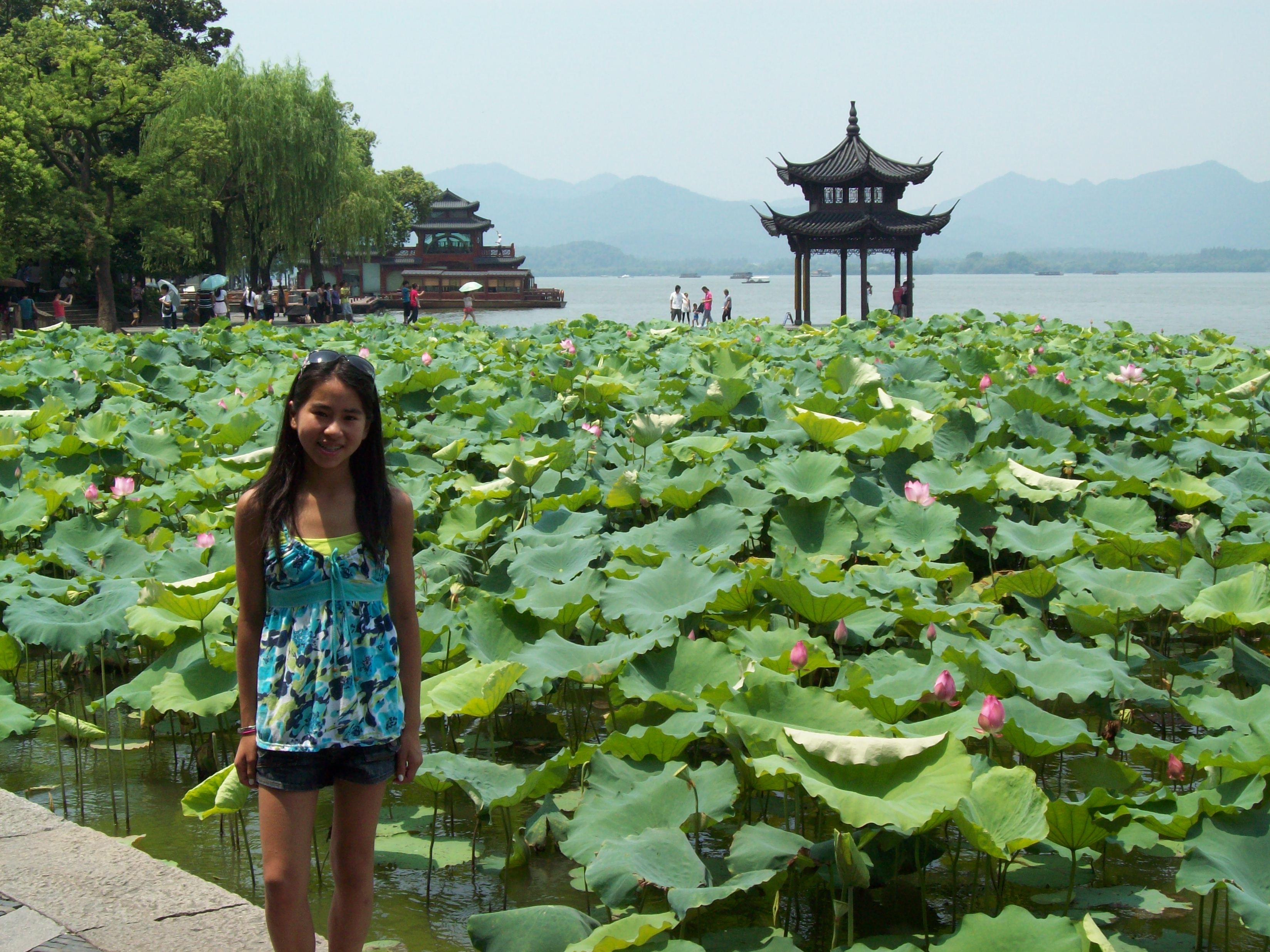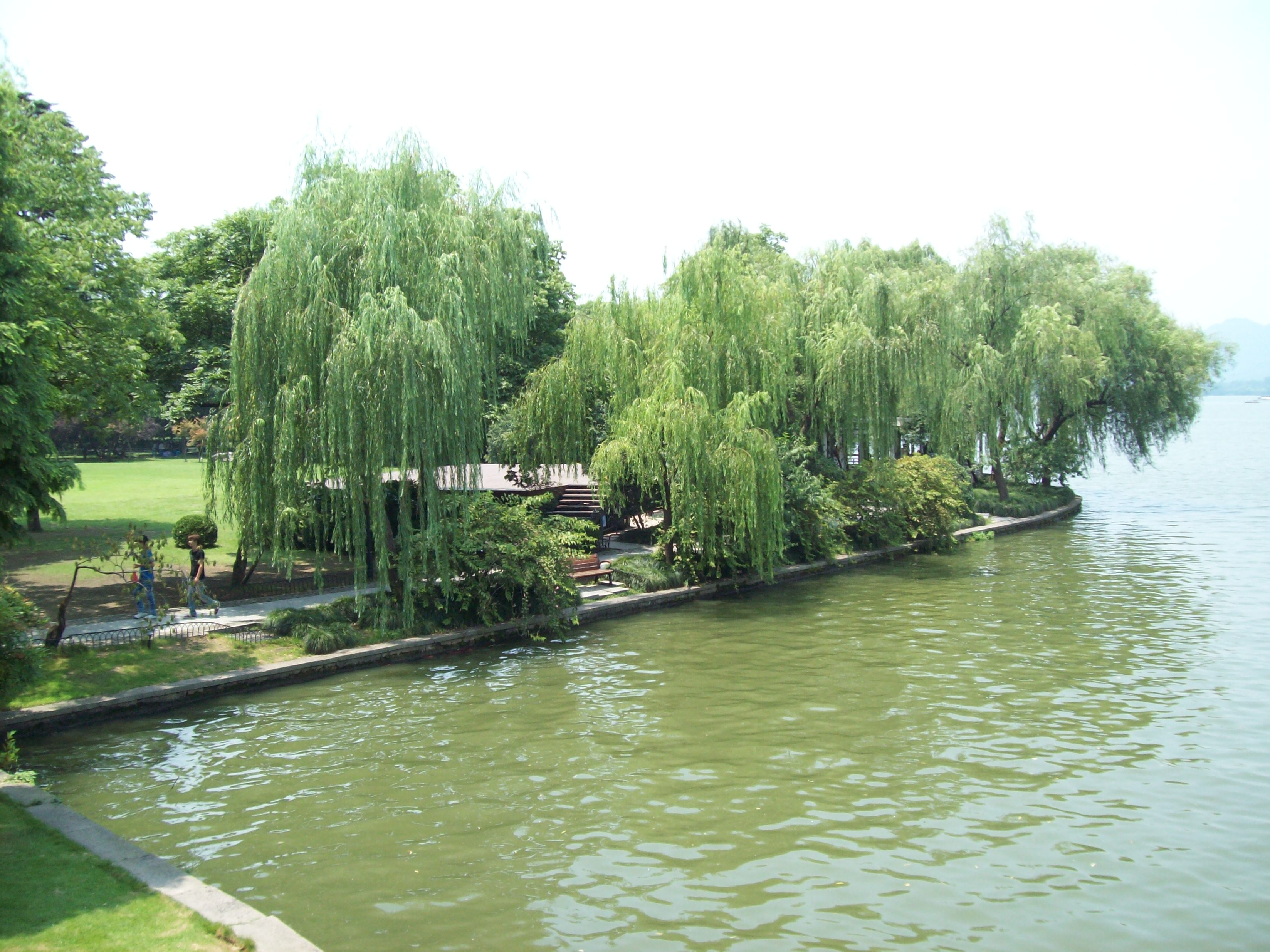
Last Monday, we left early for the Beijing airport, anticipating a quick flight to Hangzhou and a chance to finally see the city where Sophie and I first met more than twelve years ago.
Back then, a half hour after I arrived in Hangzhou and a day earlier than expected, I was called to a hotel room to pick up my baby. For the next few days, the city was a vague backdrop to our first days together. On the West Lake cruise, a leaky diaper ruined my cousin Jody’s pants. During the tea plantation tour, I stayed on the bus because Sophie had finally fallen asleep after days of nonstop screaming. I skipped the silk factory tour because the clacking machinery threatened to set her off again. I’m pretty sure we strolled through gardens by the lake while I lugged a squirmy 16-pound baby. The favorite Chinese verb, enjoy—as in “We will now enjoy some time with friends” or “Would you like to enjoy here or take away?” instead of “Is that for here or to go?”—did not quite apply to those days in Hangzhou.
Almost ten years later, we planned a return visit to the city where we’d become mother and daughter, but then had to skip it when Sophie got sick. So now, this week, we were finally on our way, or so we thought until we reached the ticket counter and were turned away. Thunderstorms the previous day had delayed flights and no one was allowed to check in. All over the airport, people slept on chairs and camped out on top of their heaps of luggage. Our guide, who didn’t speak much English, cheerfully informed us that it could be a day or more before we would be able to leave, since more thunderstorms were expected that afternoon, and we would just have to wait in the airport, maybe all day and all night.
Eventually we managed to get tickets for a six-hour bullet train. We were too busy juggling luggage at the station to get food to take away, nor did we have time to enjoy it there. Once our train was underway we trooped off to the dining car, where we futilely requested the noodles that Chinese passengers were eating. The attendant blocked the noodles with her body and pointed insistently at snacks like muffins, pistachios, and microwave popcorn, things she was convinced that Westerners prefer. I didn’t argue. I bought snacks and planned to get a very late dinner when we arrived in Hangzhou at 10:30.
And then the train came to a stop. At first we thought it was a long stop at a station, but gradually it became clear that we weren’t going to budge. I asked the man next to me what was going on, pantomiming a zooming train coming to an abrupt halt. He answered in Chinese, gesturing and then folding a piece of paper and waving it to accompany his explanation. Sophie kept up a running attempt at translation, like someone playing charades: “It’s New Year’s Day and a ball is going to drop? A ball dropped onto the train? The wheel has fallen off? It’s raining and the track is slippery?”
The man concluded from the authoritative tone with which Sophie made wild guesses that she was bilingual and proceeded to speak to her at length in Chinese for the rest of the trip. I found myself looking at her as if waiting for her to translate, and each time she looked thoughtful and said, “I have no idea whatsoever what he’s saying” to which I’d nod enthusiastically as if we’d understood, and so the man went on talking.
After a three hour wait because, we found out later, a train ahead had broken down, we were underway again, and starved, because now there was no food at all left in the dining car. At two a.m., we finally arrived and had sandwiches at KFC. In the hotel elevator, the bellman said something to Sophie and, meaning to introduce herself but half-asleep, she instead announced in Chinese that she loved herself.
The next day we had an hour to walk around West Lake before catching another train. It was 113 degrees and sweat pooled in our eyes and left our hair looking like we’d just stepped out of the shower. The lake was clear and green, big patches of lotus flowers on the edges, pagodas built along the walkways, small cruise boats drifting out on the water, and I recalled walking here twelve years ago with other new parents who pushed their babies in strollers or wore them in carriers.

Sophie hated confinement, so I carried her constantly, and I remembered how my arms and back ached, how I had a sore throat and had barely slept, how we passed gardens and puppet shows and people singing opera in this city that I didn’t know would remain so elusive. But somewhere on these walkways interspersed by relief carvings of famous historical scenes and a map of the city, I also discovered that kissy noises made my baby laugh. As we hurried along the paths, dripping with sweat, I remembered walking here as she laughed and laughed as if she had no trouble at all deciphering what I meant.